Honda Jazz vs Toyota Yaris Cross - Differences and prices compared
Compare performance (122 HP vs 130 HP), boot space and price (23100 £ vs 23700 £ ) at a glance. Find out which car is the better choice for you – Honda Jazz or Toyota Yaris Cross?
Costs and Efficiency:
When it comes to price and running costs, the biggest differences usually appear. This is often where you see which car fits your budget better in the long run.
Honda Jazz has a slight advantage in terms of price – it starts at 23100 £ , while the Toyota Yaris Cross costs 23700 £ . That’s a price difference of around 591 £.
Both cars consume an average of 4.50 L per 100 km – no difference here.
Engine and Performance:
Under the bonnet, it becomes clear which model is tuned for sportiness and which one takes the lead when you hit the accelerator.
When it comes to engine power, the Toyota Yaris Cross has a hardly perceptible edge – offering 130 HP compared to 122 HP. That’s roughly 8 HP more horsepower.
In acceleration from 0 to 100 km/h, the Honda Jazz is a bit quicker – completing the sprint in 9.40 s, while the Toyota Yaris Cross takes 10.70 s. That’s about 1.30 s faster.
Space and Everyday Use:
Cabin size, boot volume and payload all play a role in everyday practicality. Here, comfort and flexibility make the difference.
Both vehicles offer seating for 5 people.
In curb weight, Toyota Yaris Cross is slightly lighter – 1180 kg compared to 1302 kg. The difference is around 122 kg.
In terms of boot space, the Toyota Yaris Cross offers noticeable more room – 397 L compared to 304 L. That’s a difference of about 93 L.
When it comes to payload, Toyota Yaris Cross distinct takes the win – 510 kg compared to 388 kg. That’s a difference of about 122 kg.
Who comes out on top?
Overall, the Toyota Yaris Cross shows itself to be slightly ahead and secures the title of DriveDuel Champion.
It convinces with the more balanced overall package and proves to be the more versatile choice for everyday use.

Toyota Yaris Cross
Costs and Consumption
View detailed analysis
Engine and Performance
View detailed analysis
Dimensions and Body
View detailed analysis
Honda Jazz
The Honda Jazz is a supremely practical small hatch that hides clever packaging and more usable space than it lets on, with friendly styling and an unfussy charm. It’s economical to run, easy to park and perfect for buyers who want reliable, versatile daily motoring without the hassle.
details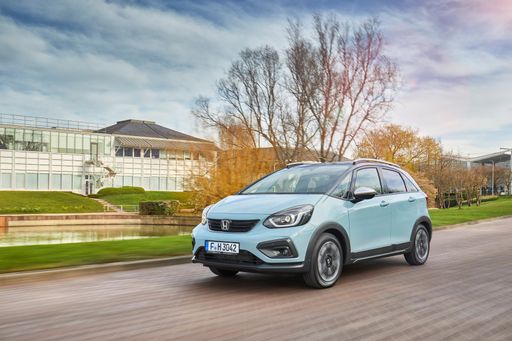
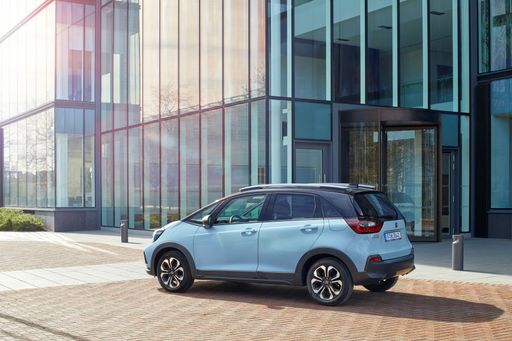
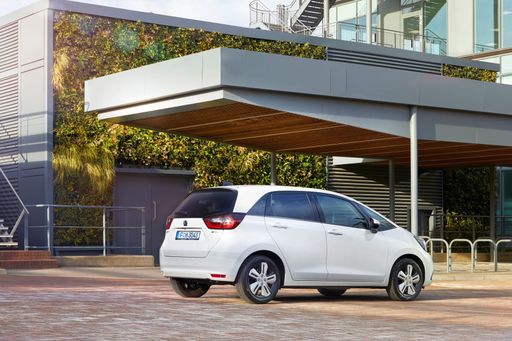
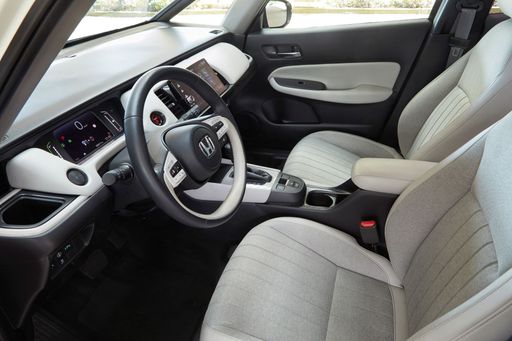
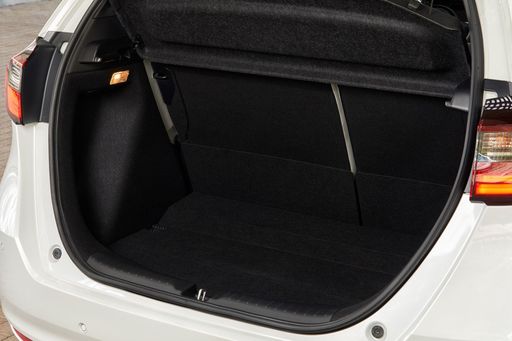
Toyota Yaris Cross
The Toyota Yaris Cross takes the jaunty personality of the Yaris and gives it a taller stance and a bit more practicality, so you get city-friendly agility with added SUV presence. It’s easy to live with, economical on the daily grind, and smartly packaged — a sensible pick for buyers who want fuss-free transport with a touch of character.
details






Costs and Consumption |
|
|---|---|
|
Price
23100 - 26700 £
|
Price
23700 - 34300 £
|
|
Consumption L/100km
4.5 - 4.8 L
|
Consumption L/100km
4.5 - 4.8 L
|
|
Consumption kWh/100km
-
|
Consumption kWh/100km
-
|
|
Electric Range
-
|
Electric Range
-
|
|
Battery Capacity
-
|
Battery Capacity
-
|
|
co2
102 - 108 g/km
|
co2
101 - 108 g/km
|
|
Fuel tank capacity
-
|
Fuel tank capacity
36 L
|
Dimensions and Body |
|
|---|---|
|
Body Type
Hatchback
|
Body Type
SUV
|
|
Seats
5
|
Seats
5
|
|
Doors
-
|
Doors
5
|
|
Curb weight
1302 - 1321 kg
|
Curb weight
1180 - 1290 kg
|
|
Trunk capacity
304 L
|
Trunk capacity
320 - 397 L
|
|
Length
-
|
Length
4180 mm
|
|
Width
-
|
Width
1765 mm
|
|
Height
-
|
Height
1595 mm
|
|
Max trunk capacity
-
|
Max trunk capacity
1097 L
|
|
Payload
369 - 388 kg
|
Payload
485 - 510 kg
|
Engine and Performance |
|
|---|---|
|
Engine Type
Full Hybrid
|
Engine Type
Full Hybrid
|
|
Transmission
Automatic
|
Transmission
Automatic
|
|
Transmission Detail
CVT
|
Transmission Detail
CVT
|
|
Drive Type
Front-Wheel Drive
|
Drive Type
Front-Wheel Drive, All-Wheel Drive
|
|
Power HP
122 HP
|
Power HP
116 - 130 HP
|
|
Acceleration 0-100km/h
9.4 - 9.7 s
|
Acceleration 0-100km/h
10.7 - 11.3 s
|
|
Max Speed
-
|
Max Speed
170 km/h
|
|
Torque
253 Nm
|
Torque
-
|
|
Number of Cylinders
4
|
Number of Cylinders
3
|
|
Power kW
90 kW
|
Power kW
85 - 96 kW
|
|
Engine capacity
1498 cm3
|
Engine capacity
1490 cm3
|
General |
|
|---|---|
|
Model Year
2025
|
Model Year
2024 - 2025
|
|
CO2 Efficiency Class
C
|
CO2 Efficiency Class
C
|
|
Brand
Honda
|
Brand
Toyota
|
Is the Honda Jazz offered with different drivetrains?
The Honda Jazz is offered with Front-Wheel Drive.




